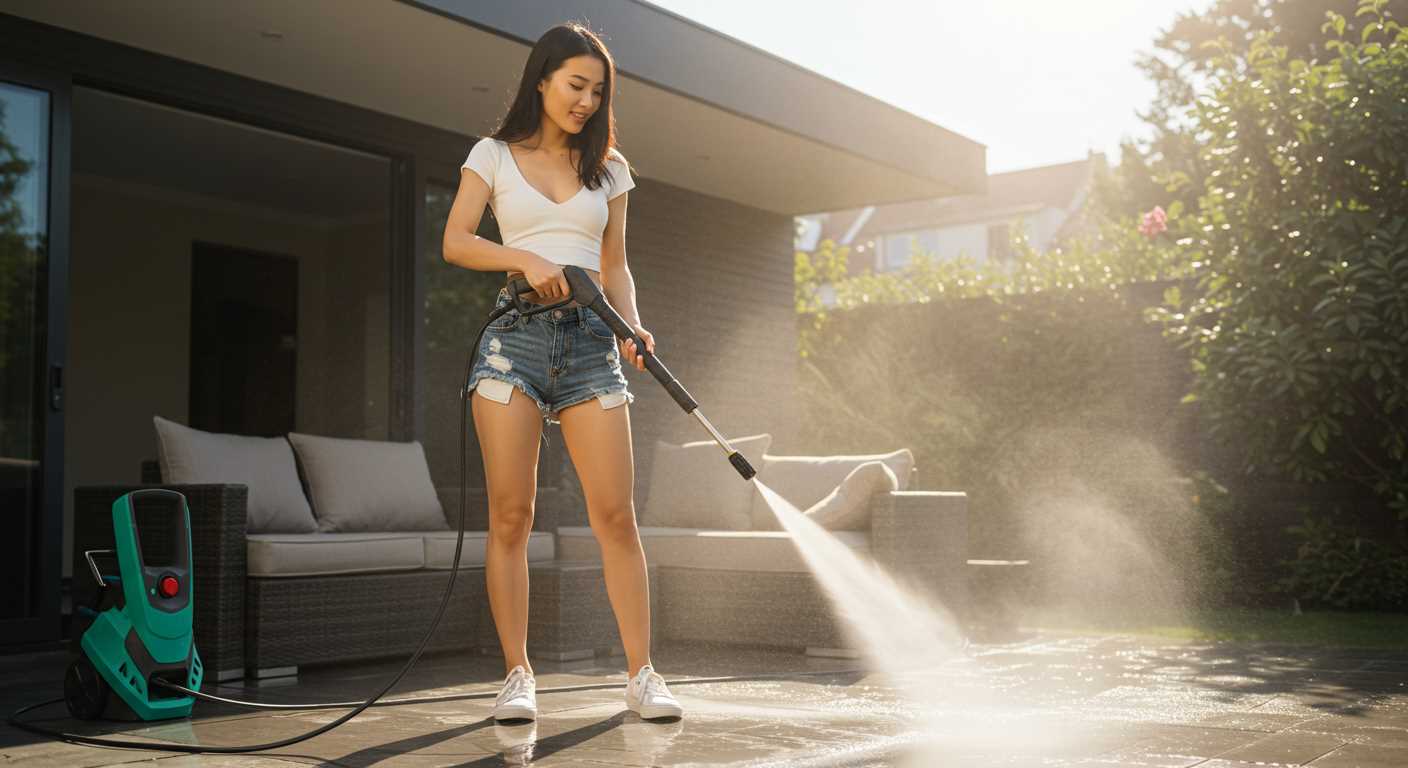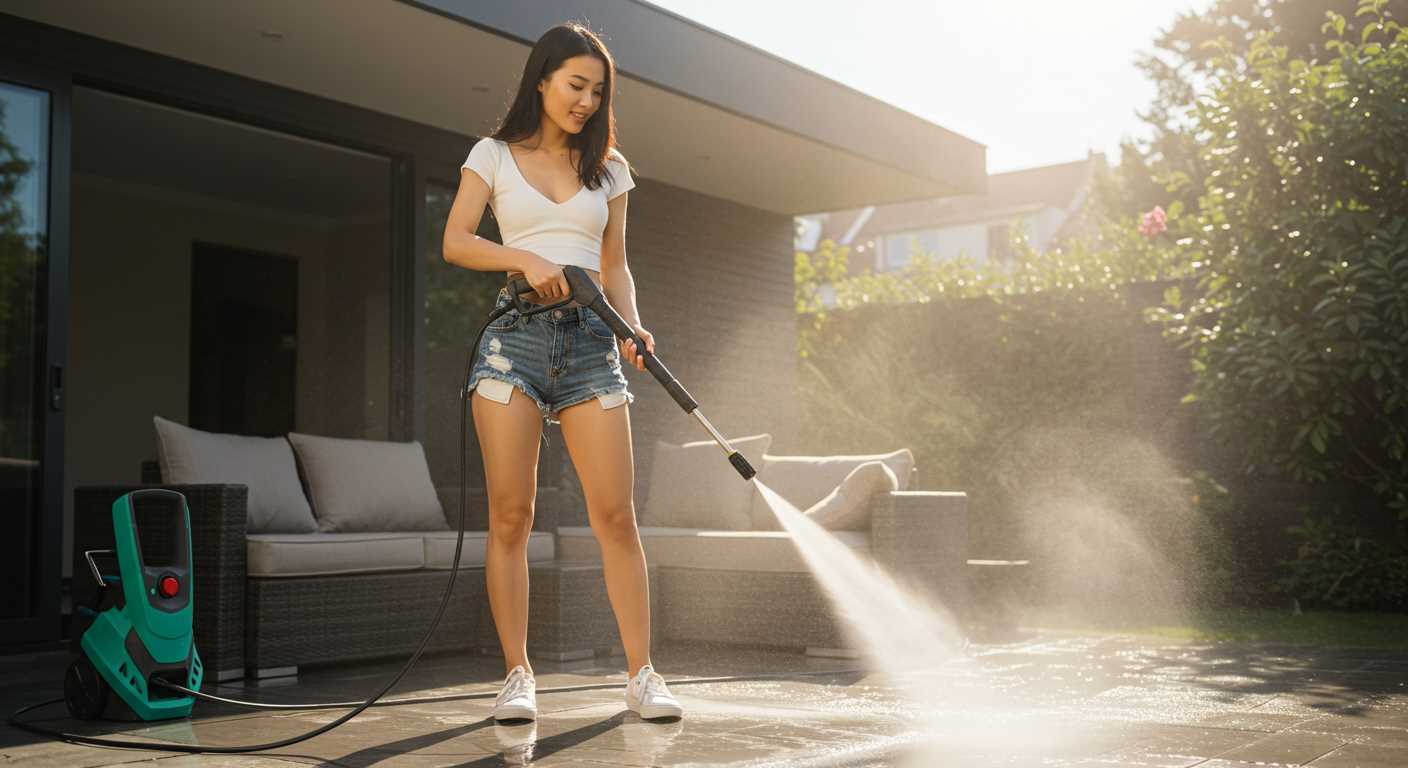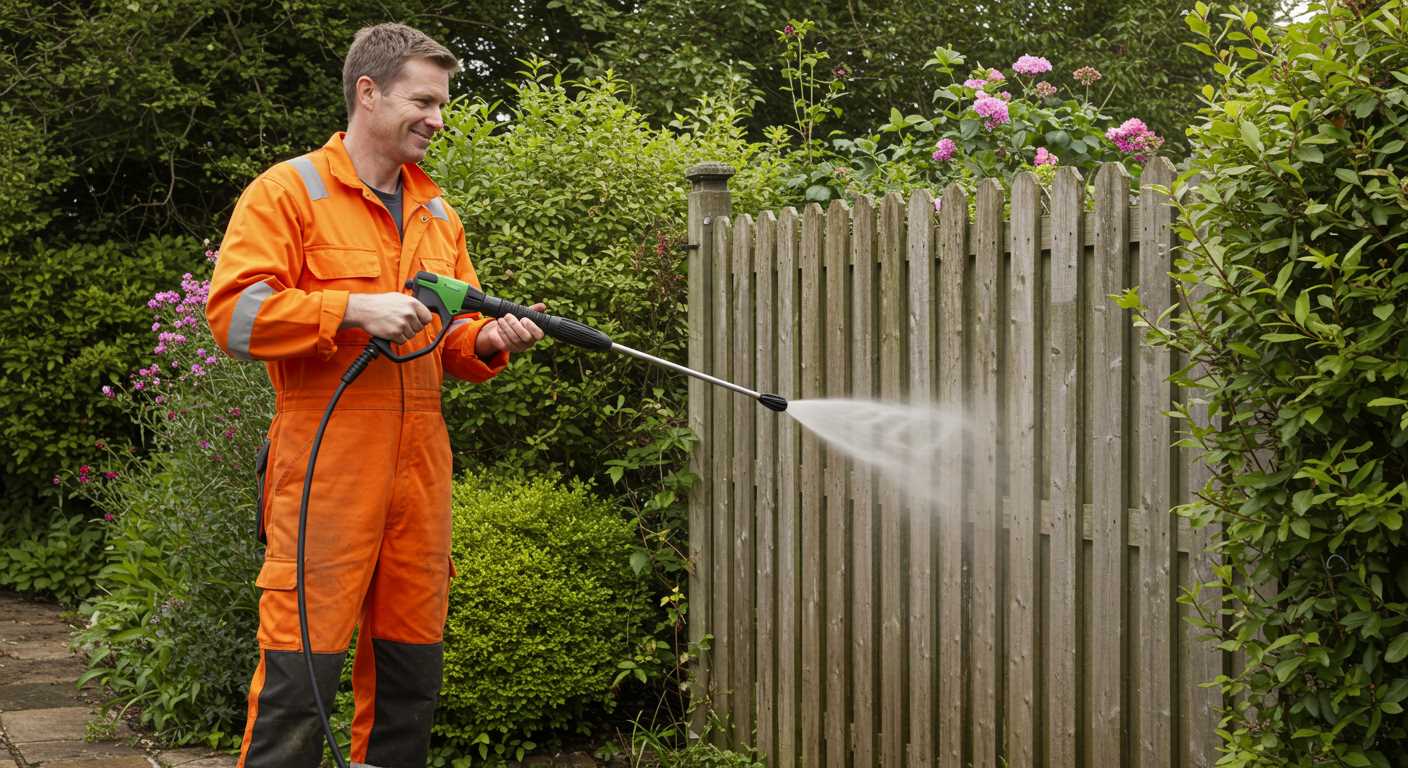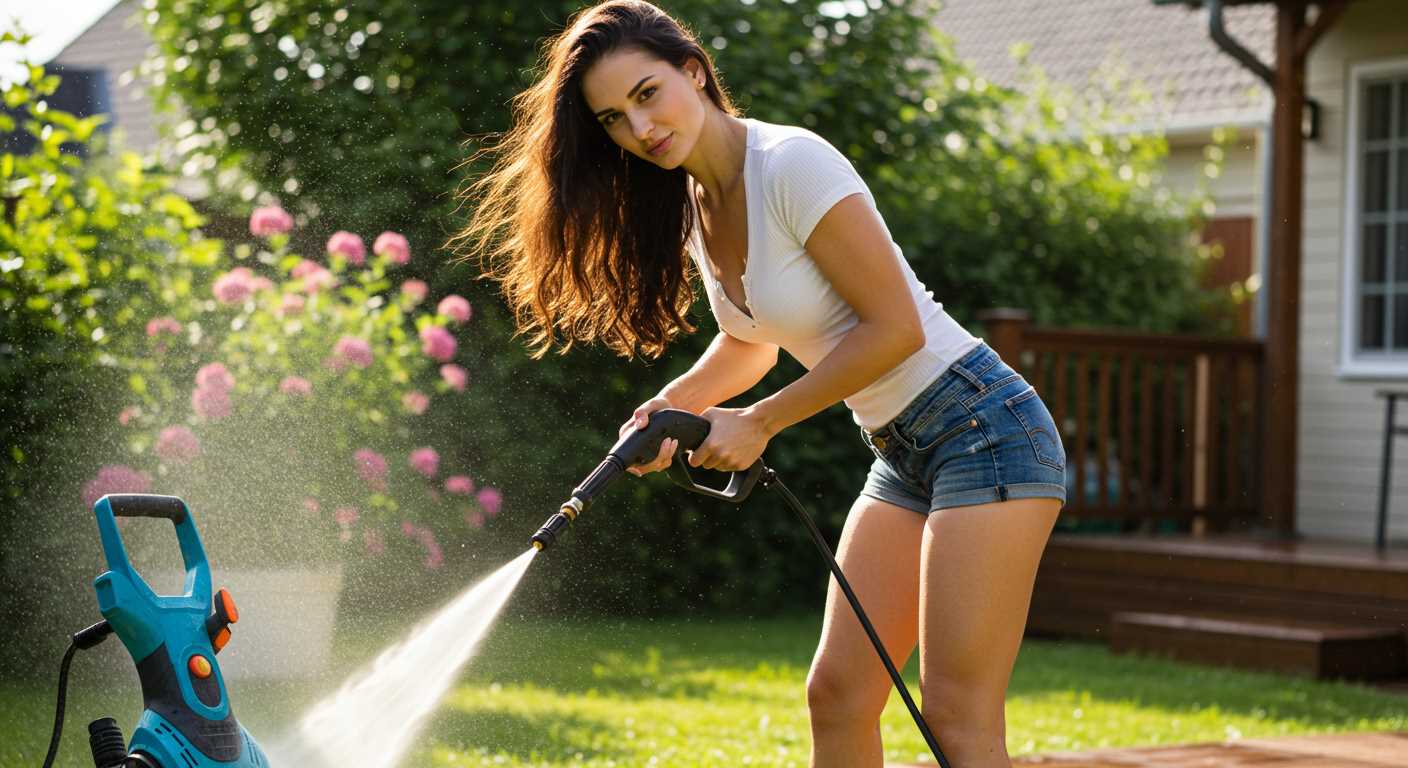




When it comes to cleaning concrete surfaces, choosing the right pressure washer nozzle can make all the difference. As someone who has tackled various outdoor cleaning projects, I understand the frustration of dealing with stubborn stains and grime that seem impossible to remove. This article dives into the best pressure washer nozzles specifically designed for concrete, ensuring you have the right tools to achieve a spotless finish.
In this piece, I will explore the different types of nozzles available, highlighting their features and benefits. Whether you’re a homeowner looking to spruce up your driveway or a professional contractor aiming for efficiency, this guide will provide you with valuable insights. You’ll also find tips on how to effectively use these nozzles to maximise their cleaning potential and extend the life of your equipment.
By the end of this article, you’ll be equipped with the knowledge to select the best pressure washer nozzle for your concrete cleaning needs. From understanding the significance of nozzle angles to recognising the importance of pressure settings, I aim to simplify your purchasing decision and enhance your cleaning experience. Let’s get started on the path to achieving pristine concrete surfaces!
Understanding Different Nozzle Types for Concrete Cleaning
When it comes to cleaning concrete surfaces, the choice of nozzle plays a crucial role in achieving optimal results. Different nozzle types are designed to produce varying spray patterns and pressure settings, making them suitable for specific cleaning tasks. Understanding these differences can help you select the right nozzle for your concrete cleaning needs.
Generally, nozzles can be categorized based on their spray patterns and angles. Each type serves a distinct purpose, from removing stubborn stains to rinsing off debris effectively. Selecting the appropriate nozzle can significantly impact the efficiency and effectiveness of your cleaning process.
Types of Nozzles
- Zero-Degree Nozzle: This nozzle delivers a concentrated, powerful stream of water, making it ideal for tough stains and grime on concrete. However, caution is necessary, as the high pressure can cause damage if used incorrectly.
- 15-Degree Nozzle: Slightly wider than the zero-degree nozzle, this option is suitable for heavy-duty cleaning tasks. It offers a balance between power and coverage, making it effective for removing dirt and grease.
- 25-Degree Nozzle: This nozzle is perfect for general cleaning tasks, providing a wider spray that is gentle enough for regular maintenance without damaging the concrete surface.
- 40-Degree Nozzle: Best suited for rinsing and light cleaning, the 40-degree nozzle disperses water over a larger area, making it ideal for final rinsing after using a more powerful nozzle.
In addition to these standard types, there are also adjustable nozzles that allow users to switch between different spray patterns. This versatility can be particularly useful for various cleaning tasks on concrete surfaces, providing options for both high-pressure cleaning and gentle rinsing.
Ultimately, understanding the different nozzle types can enhance your concrete cleaning experience, ensuring that you achieve the best possible results while maintaining the integrity of the surface. Always remember to consider the specific requirements of your cleaning task when selecting a nozzle.
Choosing the Right Pressure Rating for Effective Results
When it comes to cleaning concrete surfaces, selecting the appropriate pressure rating for your pressure washer is crucial. The pressure rating, measured in PSI (pounds per square inch), determines the force with which water is expelled from the nozzle. A higher pressure rating can effectively remove stubborn dirt, grime, and stains, while a lower rating may be more suitable for delicate tasks.
Understanding the specific cleaning needs of your concrete surface will guide you in choosing the right pressure rating. For example, driveways and patios often require a higher PSI to tackle tough embedded stains, whereas sidewalks may need less pressure to avoid damage. It is essential to balance the pressure with the nozzle type to achieve optimal results without harming the surface.
Factors to Consider
- Surface Type: Different concrete surfaces have varying tolerances to pressure. Smooth surfaces generally withstand higher pressure than rough or porous surfaces.
- Stain Type: The nature of the stain significantly influences the necessary pressure. Oil stains may require more force, while dirt can often be removed with lower pressure.
- Nozzle Selection: Pairing the right nozzle with the appropriate pressure rating can enhance cleaning efficiency. A narrow spray pattern focuses the pressure, while a wider pattern disperses it.
- Distance from Surface: Maintaining the correct distance between the nozzle and the concrete will affect the cleaning performance. Closer distances increase pressure impact but can risk surface damage.
Ultimately, the correct pressure rating combined with the right nozzle will ensure effective cleaning results while preserving the integrity of your concrete surfaces. Before starting your cleaning project, always test a small inconspicuous area to ensure compatibility and effectiveness.
Benefits of Turbo Nozzles in Concrete Maintenance
Maintaining concrete surfaces requires effective cleaning solutions to ensure longevity and aesthetic appeal. One of the most efficient tools for this task is the turbo nozzle, which combines power and precision to tackle tough stains and dirt on concrete.
Turbo nozzles operate by rotating a concentrated stream of water, creating a powerful cleaning force that can penetrate deep into the porous surface of concrete. This method not only enhances cleaning efficiency but also reduces the amount of water used, making it an eco-friendly option.
Key Advantages of Using Turbo Nozzles
- Enhanced Cleaning Power: The high-pressure rotating jet effectively removes stubborn stains, grime, and mildew that regular nozzles may leave behind.
- Time Efficiency: By covering larger areas in less time, turbo nozzles allow for quicker maintenance, making them ideal for both residential and commercial applications.
- Versatility: These nozzles can be used on various surfaces beyond concrete, including brick and stone, offering a multi-functional solution for outdoor cleaning tasks.
- Reduced Water Consumption: The focused water stream cleans efficiently, which can lead to lower water usage compared to traditional nozzles.
In conclusion, turbo nozzles provide significant benefits for concrete maintenance, allowing for thorough cleaning with less effort and resource consumption. Their efficiency and versatility make them a valuable addition to any cleaning arsenal.
Comparing Angled Nozzles for Specific Cleaning Tasks
Angled nozzles are essential tools for optimising the performance of pressure washers, particularly when it comes to tackling specific cleaning tasks on concrete surfaces. These nozzles come in various degrees, each designed to provide a different spray pattern and pressure, making them suitable for a range of applications. Understanding the nuances between these angled nozzles can significantly enhance your cleaning efficiency and effectiveness.
When choosing an angled nozzle, it’s important to consider the type of task at hand. For instance, a wider spray angle is generally more suitable for larger areas that require less concentrated cleaning power, while a narrower angle focuses the pressure for stubborn stains or heavily soiled sections.
Understanding Angled Nozzle Options
Here are some common angled nozzle options and their typical uses:
- 15-Degree Nozzle: Ideal for removing tough stains, such as oil or grease, from concrete surfaces. The concentrated spray can penetrate deeper, making it effective for heavy-duty cleaning.
- 25-Degree Nozzle: A versatile choice for general cleaning tasks. This nozzle offers a balance between power and coverage, making it suitable for cleaning driveways and patios.
- 40-Degree Nozzle: Best for lighter cleaning tasks, such as rinsing off dirt or debris. The wider spray pattern makes it perfect for delicate surfaces or areas that require gentler cleaning.
Furthermore, the choice of nozzle can affect the amount of water used and the time taken for cleaning. Using the wrong angled nozzle could lead to inefficient cleaning or, worse, damage to the concrete surface. Therefore, understanding the specific requirements of each task is crucial in selecting the right nozzle for optimal results.
| Nozzle Angle | Best For |
|---|---|
| 15-Degree | Tough stains, grease removal |
| 25-Degree | General cleaning tasks |
| 40-Degree | Lighter cleaning, rinsing |
By carefully selecting the appropriate angled nozzle, users can achieve superior cleaning outcomes while also prolonging the lifespan of both the concrete surface and the pressure washer itself.
Essential Features to Look for in a Concrete Nozzle
When selecting a nozzle for cleaning concrete surfaces, it’s crucial to consider specific features that enhance performance and efficiency. A suitable nozzle can significantly reduce the time and effort required to achieve a clean finish, making it an indispensable tool for home maintenance and professional cleaning tasks alike.
One of the primary factors to consider is the nozzle’s spray pattern. Different patterns, such as fan or concentrated streams, serve various purposes and can affect the effectiveness of the cleaning process. A high-pressure nozzle is essential for removing tough stains and grime from concrete, ensuring that the surface is thoroughly cleaned.
Key Features to Evaluate
- Pressure Rating: Ensure the nozzle can handle the pressure produced by your washer, ideally matching or exceeding it for optimal performance.
- Material Quality: Look for nozzles made from durable materials such as brass or high-quality plastic to withstand wear and tear.
- Adjustable Spray Settings: Nozzles that offer adjustable spray settings provide versatility, allowing you to switch between different patterns according to the task.
- Compatibility: Verify that the nozzle fits your pressure washer model to ensure seamless operation.
- Ease of Use: A lightweight and ergonomic design will make handling and manoeuvring easier during prolonged cleaning sessions.
Considering these features will help you choose a concrete nozzle that not only meets your cleaning requirements but also enhances the overall efficiency of your pressure washing tasks. Investing in a quality nozzle is essential for achieving the best results on concrete surfaces.
Recommendations for Concrete-Specific Nozzles
When it comes to cleaning concrete surfaces, having the right pressure washer nozzle can make a significant difference in efficiency and effectiveness. Concrete is a durable material but can accumulate stubborn stains, grime, and dirt over time. Selecting a nozzle designed specifically for concrete cleaning will ensure optimal results and prolong the life of both the surface and the pressure washer.
Concrete-specific nozzles are usually designed to deliver a concentrated spray pattern, which helps to break down tough stains and dirt without damaging the surface. The right nozzle can also improve water efficiency, allowing for better cleaning with less water usage. Below are some key considerations when choosing a nozzle for concrete cleaning.
Key Considerations
- Spray Angle: A narrower spray angle, typically between 0 to 15 degrees, provides a concentrated jet of water that can effectively tackle tough stains.
- Pressure Rating: Ensure the nozzle is compatible with the pressure rating of your washer. Higher pressure ratings are generally more effective for concrete.
- Material: Nozzles made from durable materials such as brass or stainless steel tend to last longer and withstand high-pressure conditions.
- Adjustability: Some nozzles offer adjustable spray patterns, allowing versatility in cleaning different types of surfaces.
In conclusion, choosing the right nozzle specifically designed for concrete cleaning can greatly enhance your pressure washing experience. Consider the spray angle, pressure rating, material, and adjustability to ensure that you select a nozzle that meets your cleaning needs.
Maintenance Tips for Prolonging Nozzle Lifespan
Maintaining your pressure washer nozzle is crucial for achieving optimal performance and extending its lifespan. Proper care can prevent clogs, corrosion, and wear, ensuring that your nozzle continues to deliver powerful cleaning results on concrete surfaces.
Here are some essential maintenance tips to keep your pressure washer nozzle in top condition:
- Regular Cleaning: After each use, rinse the nozzle with clean water to remove any debris or residue. This helps prevent clogs that can diminish performance.
- Inspect for Damage: Check the nozzle for any signs of wear or damage, such as cracks or chips. Replace it if necessary to maintain proper function.
- Use Appropriate Pressure: Always use the correct pressure settings for your specific nozzle to avoid excessive wear and tear.
- Store Properly: When not in use, store your nozzle in a dry, protected place to prevent corrosion and physical damage.
- Use Filters: Installing a filter on your pressure washer can help catch debris before it reaches the nozzle, reducing the risk of clogs.
By following these maintenance tips, you can ensure a longer lifespan for your pressure washer nozzle, making your concrete cleaning tasks more efficient and effective.
Top 10 Best Pressure Washer Nozzle For Concrete





Best Pressure Washer Nozzle For Concrete
Features
| Part Number | ePX3100v |
| Model | ePX3100v |
| Color | Black |
| Size | 2100 Max PSI |
Features
| Part Number | 310448028 |
| Model | RY31RN01VNM |
| Color | Green |
Features
| Color | Black |
Features
| Part Number | 1.324-706.0 |
| Model | 1.324-706.0 |
| Color | Yellow |
Video:
FAQ:
What type of nozzle is best for cleaning concrete surfaces?
The best nozzle for cleaning concrete surfaces is typically the 0-degree or 15-degree nozzle. The 0-degree nozzle delivers a concentrated stream of water, providing maximum pressure for tough stains and grime. The 15-degree nozzle offers a wider spray while still maintaining strong cleaning power, making it suitable for larger areas and less stubborn dirt. Both nozzles are effective, but choosing the right one depends on the specific cleaning task at hand.
How do I know which nozzle size to use for my pressure washer?
Nozzle sizes are generally indicated by a colour code and a degree rating. Commonly, red represents 0 degrees, yellow for 15 degrees, green for 25 degrees, and white for 40 degrees. To determine the appropriate size, consider the type of surface you are cleaning and the level of dirt or stains present. For heavy-duty cleaning on concrete, the red or yellow nozzles are most effective, while a green or white nozzle may suffice for lighter cleaning tasks.
Can I use a pressure washer with a standard garden hose nozzle?
Using a standard garden hose nozzle with a pressure washer is not recommended. Pressure washers are designed to work with specific nozzles that manage the water flow and pressure effectively. A garden hose nozzle may not withstand the high pressure and can cause damage or lead to reduced cleaning performance. It’s best to use nozzles specifically designed for your pressure washer model to ensure optimal results and safety.
What pressure setting should I use when cleaning concrete?
When cleaning concrete, it is advisable to use a pressure setting between 2000 and 3000 PSI, depending on the type of stains and the condition of the concrete. For light stains, a lower pressure around 2000 PSI may be sufficient. However, for tougher stains like oil or grease, you may need to increase the pressure closer to 3000 PSI. Always start with a lower pressure and adjust as necessary to avoid damaging the concrete surface.
How often should I clean my concrete driveway with a pressure washer?
The frequency of cleaning your concrete driveway with a pressure washer can vary based on factors such as climate, usage, and the presence of vegetation. Generally, cleaning it at least once or twice a year is advisable to prevent the build-up of dirt, algae, and stains. If your driveway experiences heavy traffic or is prone to stains, you might consider cleaning it more frequently. Regular maintenance helps preserve the appearance and longevity of the concrete.




.jpg)


